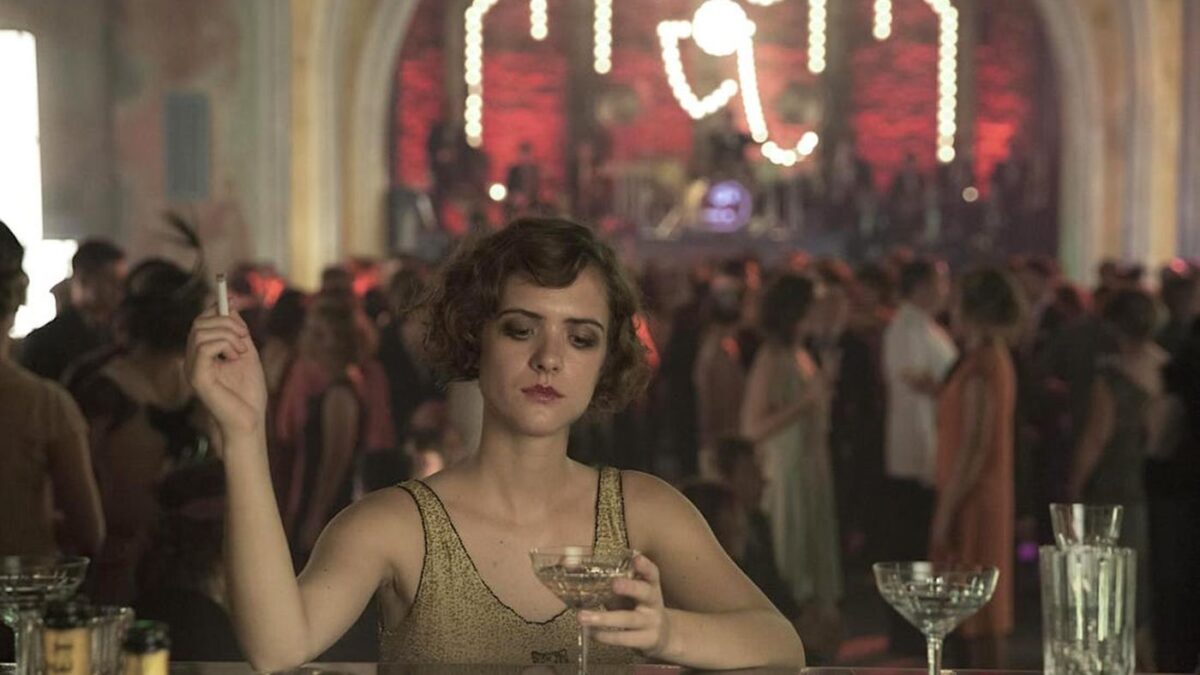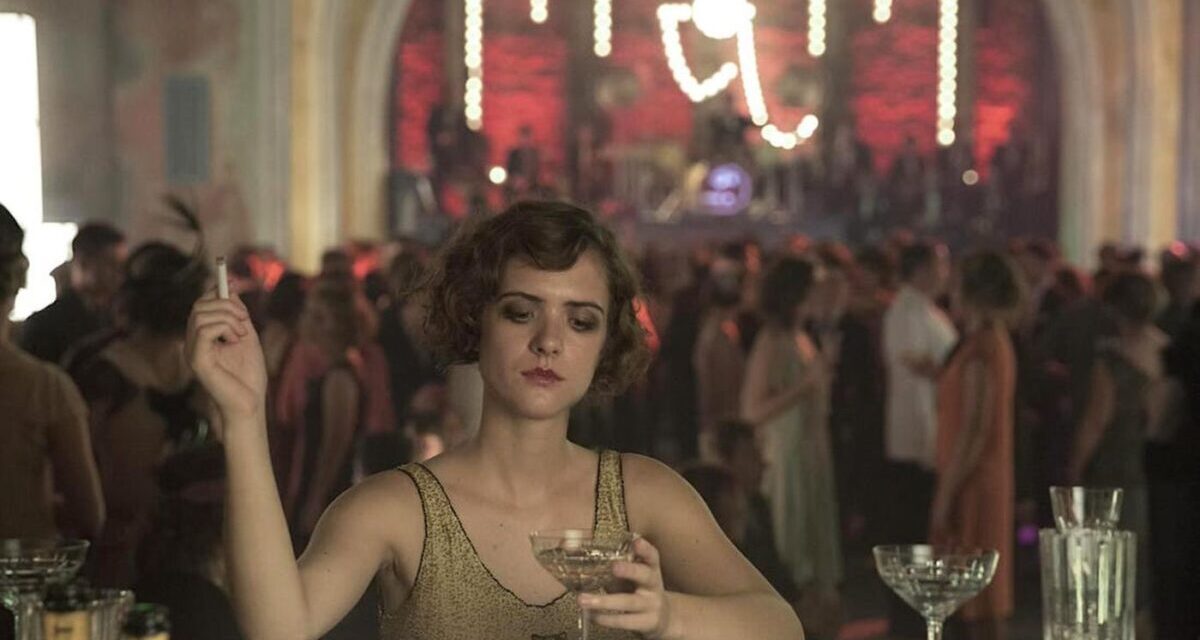
In anticipation of season 4 premiering in the U.S. on MHz Choice June 25, I’ve been watching Babylon Berlin, a popular, heady drama set in 1929 Berlin when Germany was known as the Weimar Republic. The series is chock full of political intrigue that may be familiar to Germans, but can be very confusing for the rest of us. I did some research on the history so you don’t have to. Please note that this article includes spoilers for season 1 of Babylon Berlin. (episodes 1-8)
For more recommendations of German Crime Drama, click here.
It All Starts with WWI
After WWI, Germany signed the Treaty of Versailles with neighboring European countries. In very simple terms, the treaty forced the Germans into removing Kaiser Wilhelm from power, paying reparations that they couldn’t afford, and also forbid them from building up their army or attacking any of the countries within the treaty. In response, there was a faction of German military leaders who secretly built up the military with civilian “militias”, in anticipation of restoring Wilhelm to power. These secret militias were known as the Black Reichswehr. In the world of Babylon Berlin, several characters are involved in the Black Reichswehr, which is introduced in season 1 and continues to be a plot point in season 2. Note that in real life, the drama around the Black Reichswehr happened in 1921-23, NOT in 1929, as it is portrayed in the series.
See what else we recommend on MHz Choice here.
And then there are the Communists
Another political faction that was active in post-war Berlin was the communists. There was a very large and active German communist party who largely fought for workers’ rights. In Babylon Berlin, as in real life, there is a May Day demonstration which turns into a massacre when the Berlin police gun down communists, most of whom were peacefully protesting. The police blamed the communists for shooting first, but that is a cover up that will come back to haunt them.
In addition to the German communist party, there are actual Soviet communists in the series. Russians are divided into three basic groups: White Russians, who are Tsarists and lost a lot of privilege and money during the Bolshevik revolution; Soviets, who are communists that follow Stalin; and Reds, or Trotskyists, who are ideologically pure Leninist communists that want to oust Stalin. Ivan Trotsky was exiled from Russia, and is hiding in Istanbul until his followers can raise enough money and arms to overthrow Stalin.
Weimar Berlin
After WWI, Berlin is up for grabs. On the one hand, you have impoverished citizens who live in slums and are barely making it. On the other, you have the hedonistic party scene for the elite, in which anything goes. Clubs such as the Moka Efti, which is the heart of the action in Babylon Berlin and is also based on a real club, offer lavish entertainment, sex of any flavor, drugs, booze and all-night partying. The character of Charlotte Ritter (Liv Lisa Fries) is the viewer’s surrogate in both worlds of Berlin. She lives in a tiny cold water flat with her mother, grandfather, sisters, nephews and brother-in-law. By day she works as a clerk for the police, and by night she is a sex-worker at the Moka Efti. Charlotte is bright, curious and ambitious, and she is determined to become a police inspector by any means possible.
MHz Choice published an article on Weimar Berlin here.
The Main Characters of Babylon Berlin
Gereon Rath (Volker Bruch) is a police inspector from Cologne who gets transferred to Berlin vice in order to find and destroy a compromising sex film before the mayoral election in Cologne. Gereon’s partner is Bruno Wolter (Peter Kurth), who is desperately trying to figure out why Gereon is there. They have an uneasy relationship, as neither knows whether to trust the other. Wolter knows all the players in Berlin, including the Armenian (Misel Maticevic), the gangster who runs the Moka Efti, and who holds compromising films on all of the politicians who visit his club. Charlotte first meets Gereon in the bathroom at the police HQ, where he is having a terrible attack of PTSD from his experiences in WWI. Charlotte helps him retrieve his morphine and gives him a dose, which revives him. The Armenian is a supporter of the mysterious Dr. Schmidt (Jens Harzer), who uses hypnosis and other controversial tactics to help soldiers with PTSD. This is important because when Gereon’s investigations run afoul of the Armenian, instead of killing Gereon, he brings him to Dr. Schmidt for treatment. It’s unclear why he does this, but it becomes clear later in the series.
For brief episode-by-episode recaps on all seasons of Babylon Berlin, click here.
Other Important Characters in Babylon Berlin
Svetlana Sorokina (Severija Janusauskaite) is a White Russian countess living in Berlin who performs at the Moka Efti in drag as Nikoros. Sveta is supposedly helping the Trotskyists, led by Alexei Kardakov (Ivan Shvedoff), by donating her family’s gold to the cause. The gold is hidden in a train on the way from Moscow to Berlin. In reality, Sveta betrays Kardakov to the Soviet embassy, leading to a massacre of the Trotskyists in a basement headquarters. Sveta then tries to get the gold transferred to Paris, where she intends to live off of it, but she fails, and has to spend the rest of seasons 1 and 2 scheming to get it done. The train, which is commandeered by police, is carrying “pesticides”, ordered by the industrialist Alfred Nyssen (Lars Eidinger), another of Sveta’s lovers. But it turns out that the pesticides are really Phosgene gas, which is used in chemical warfare. Did Nyssen know this? And if so, who is working for? That’s what the police want to find out. Another important character is Councilor August Benda (Matthias Brandt), the head of the Political Police in Berlin. He is earnestly trying to make the new republic work, and he has a lot of enemies. Especially since he is determined to investigate and break up the Black Reichswehr. He and Gereon are allies.
That’s Enough For Now
Whew! That is a lot of information, and it’s not even everything. There are a lot of side characters who become important as well, but for now, this will do. We haven’t even gotten to the rise of the Nazis yet, but it’s coming, and the roots of that movement have already taken hold in 1929. One of the things I like about Babylon Berlin season 1 is that it gives us an idea of the chaos and conflicting movements of post-war Germany without focusing on the Nazis. The other thing I love about the series, and almost all German series, is that they let scenes play out that aren’t strictly necessary for plot but are important for setting, such as the entire Nikoros performance of Zu Asche, Zu Staub at the Moka Efti in episode 2. Babylon Berlin is an exceedingly dense series, but hopefully you will find this article helpful for understanding seasons 1 and 2.
Looking for more of the best in foreign TV? Don’t miss our other great reviews HERE!






